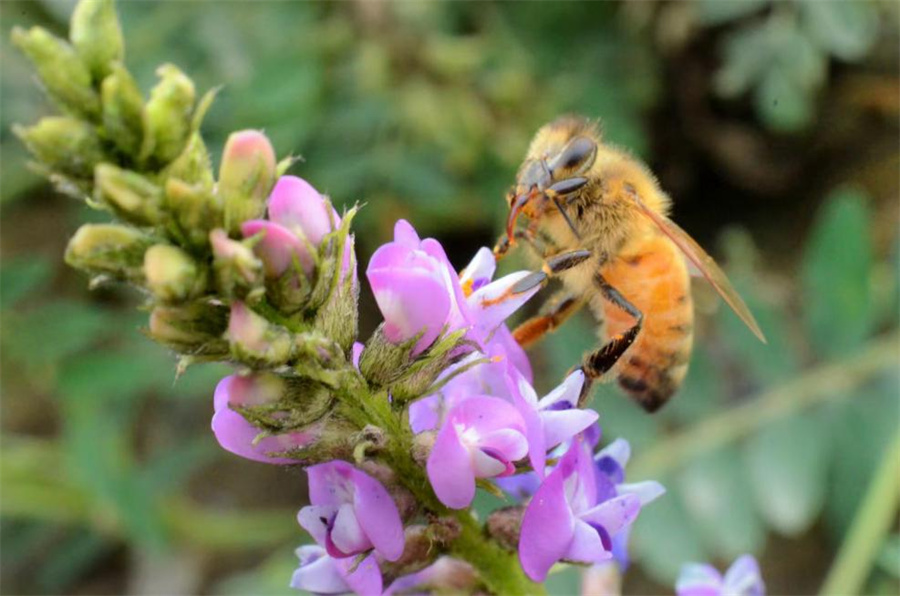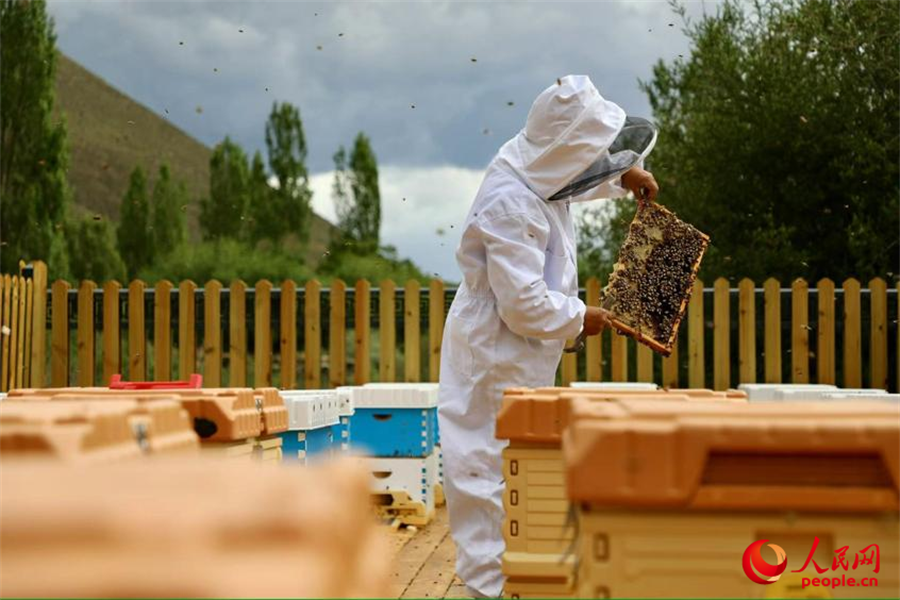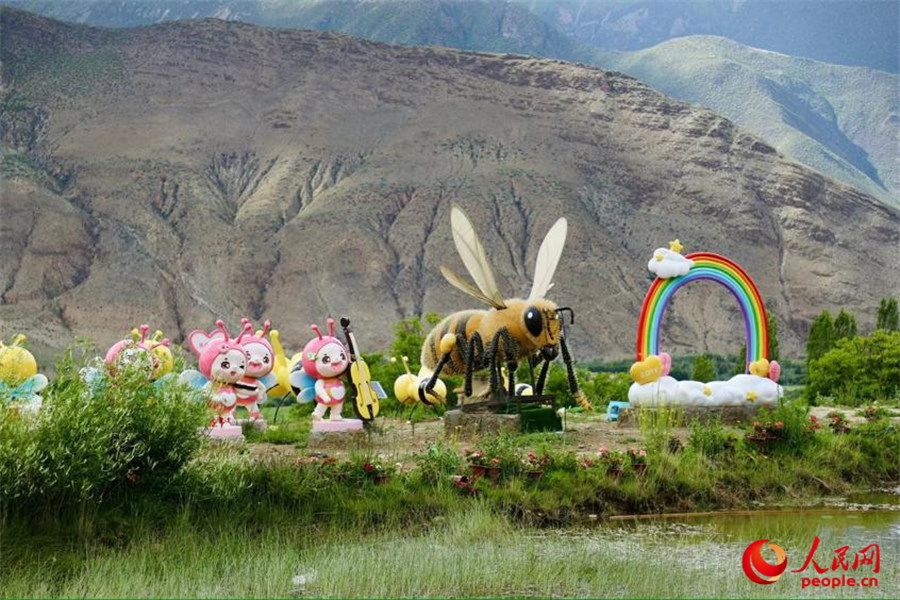Honey bee farming generates wealth for villagers in SW China's Xizang

A honey bee sucks nectar from a flower of Astragalus tibeticola Podlech at a bee farm in Shannan city, southwest China's Xizang Autonomous Region. [Photo courtesy of the interviewee]
Amidst lush valleys, the sound of crystal-clear springs flowing can be heard. On the pistil of an astragalus flower, a tiny bee nimbly gathers pollen.
Against the backdrop of the azure mountain ranges, these little bees dance amidst a kaleidoscope of blossoms, resembling golden spirits flitting between the blooms.
Shannan city, a bee paradise
Nestled in the southern foothills of the Himalayas, Shannan city in southwest China's Xizang Autonomous Region boasts primitive forests, pristine water sources, and ample sunshine. It is home to over 2,000 medicinal and pollen producing plants for honey bees.
"The exceptional climate in this region provides a natural shield against acarapisosis, a devastating threat to honey bee farming that can wipe out entire colonies," explained Zhang Liangfu, head of a bee farm in Shannan. He further emphasized that the bees here naturally overcome this disease without the requirement of pesticides or antibiotics.
In the summer of 2016, Zhang ventured into a valley in Shannan with 20 beehives and a tent to embark on a mission of beekeeping and producing honey.

A staff member checks on the growth of honey bees at a bee farm in Shannan, southwest China's Xizang Autonomous Region. [People's Daily Online/Tsering Norbu]
Spreading the wealth
Today, Zhang owns over 8,000 beehives. However, it takes more than 80 days to manage all the beehives at the farm on his own.
He invited nearby villagers to take up some work related to beekeeping, such as caring for the bees, and protecting them from livestock and wild animals. This industry generates an additional income of over 6 million yuan (about $825,654) annually, providing more opportunities for locals to generate wealth.
The villagers not only raise honey bees but also actively cultivate various nectar-producing plants.
"It's amazing how the beekeeping industry not only enhances the greenery but also adds beauty to the village," Zhang said proudly.

Photo shows a honey bee-themed ecological experience park in Shannan, southwest China's Xizang Autonomous Region. [People's Daily Online/Tsering Norbu]
In 2023, a honey bee-themed ecological experience park was established in Shannan.
Situated inside an apple orchard that spans over 200 mu (about 13.33 hectares), the park provides a space for children to learn about plants and students to create beeswax. The various activities offered by the park, such as family trips, educational trips, and leisure activities, further contribute to the development of the area.
"Today, bees have infiltrated over 50 villages. Leveraging Xizang’s unique ecological and cultural resources, we aspire for bees to reach more villages, enriching more local lives through the beekeeping industry," Zhang affirms.
























